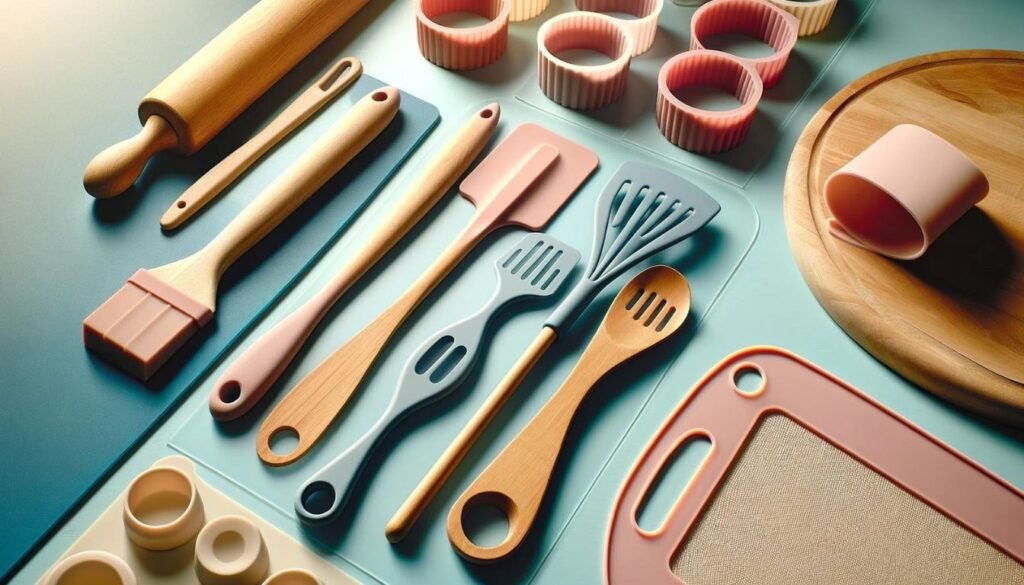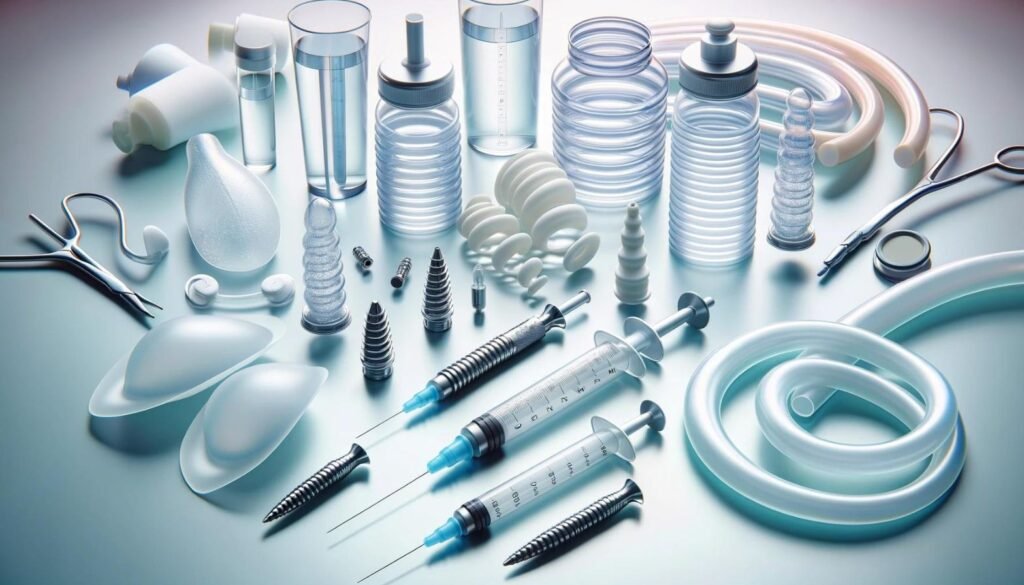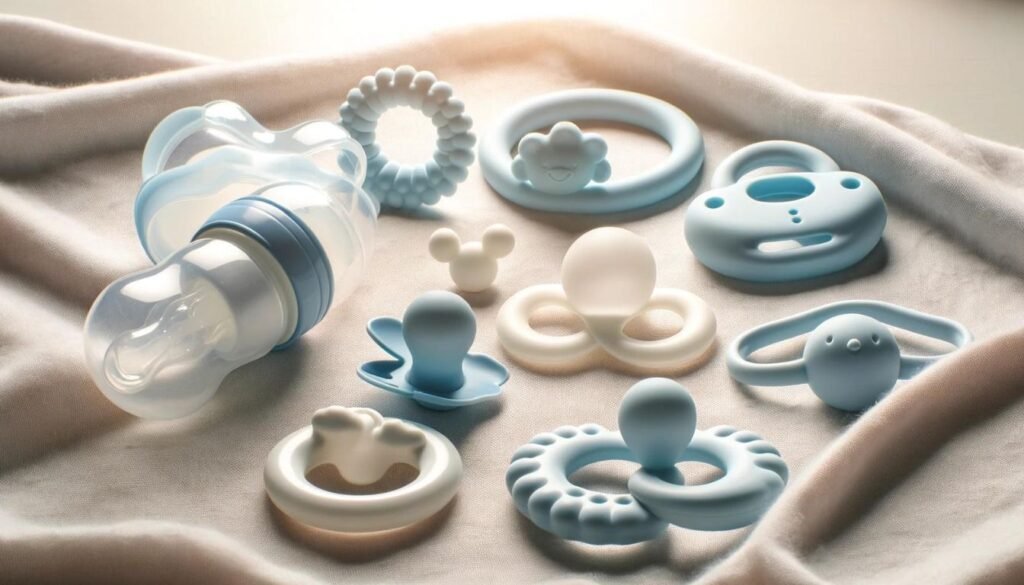In today’s health-conscious world, consumers are increasingly worried about the materials used in everyday products. The concern about Bisphenol A (BPA), a harmful chemical found in many plastics, is widespread. Many people are switching to silicone products, assuming they are safer. But is silicone really free from BPA?
Silicone, a synthetic polymer made from silicon, oxygen, and other elements, does not contain BPA. Unlike traditional plastics, silicone is BPA-free and considered a safer alternative for various applications.
This reassurance might be enough for some, but let’s delve deeper into why silicone is a better choice.
What is BPA and Why is it Harmful?
BPA is a chemical used in manufacturing certain plastics and resins. It’s often found in plastic bottles, food containers, and even the linings of some canned foods. BPA can leach into food and beverages from these containers, leading to potential health risks. Studies have linked BPA exposure to various health issues, including hormonal disruptions, heart problems, and developmental issues in children .

Why is Silicone BPA-Free?
Silicone is a versatile material made from silica (sand). During its production, it doesn’t require BPA, which is mainly used to make hard, clear plastics like polycarbonate. Instead, silicone is created through a different chemical process that combines silicon, oxygen, carbon, and hydrogen. This process results in a material that is flexible, durable, and most importantly, BPA-free .
Is Silicone Safer Than Plastic?
Yes, silicone is generally considered safer than plastic. Here are some reasons why:
Heat Resistance
Silicone can withstand high temperatures without breaking down or releasing harmful chemicals. This makes it ideal for baking mats, baby bottle nipples, and kitchen utensils .
Durability
Silicone is extremely durable and resistant to damage from extreme temperatures, moisture, and UV rays. Unlike plastic, it doesn’t degrade easily, making it a long-lasting option .
Non-Toxic and Hypoallergenic
Silicone is non-toxic and hypoallergenic, making it safe for food contact and medical applications. It doesn’t react with food or beverages, ensuring that what you consume remains pure .
What Are the Applications of Silicone?
Silicone’s versatility makes it useful in various industries:
Medical and Healthcare
In the medical field, silicone is used for implants, tubing, and various medical devices. Its non-reactive nature ensures that it doesn’t cause adverse reactions when in contact with the human body .

Kitchenware
Silicone is popular in kitchens for making bakeware, spatulas, and sealing rings for pressure cookers. Its heat-resistant properties make it ideal for cooking and baking .
Baby Products
Parents often choose silicone products like pacifiers, teething rings, and baby bottle nipples because they are BPA-free and safe for babies .
Industrial Applications
Silicone is used in sealants, gaskets, and insulating materials due to its stability and resistance to environmental factors .
Are There Any Concerns with Silicone?
While silicone is generally safe, it’s essential to use high-quality, food-grade silicone for items that come into contact with food or your body. Low-quality silicone products might contain fillers that can compromise their safety.
Environmental Impact
Silicone is more environmentally friendly than plastic because it lasts longer and breaks down more slowly. However, it’s not biodegradable. Recycling silicone is possible, but not as straightforward as recycling plastic .
Cost
Silicone products can be more expensive than their plastic counterparts. However, their durability and safety often justify the higher price.

How to Identify Quality Silicone Products?
To ensure you’re using high-quality silicone products, look for the following:
Certifications
Check for certifications like FDA approval or LFGB certification, which indicate the silicone meets safety standards for food contact .
Feel and Smell
High-quality silicone should not have a strong odor. It should feel smooth and pliable, not sticky or greasy .
Transparency from Manufacturers
Reputable manufacturers will provide information about the materials and processes used in their silicone products. Avoid products from brands that are not transparent about their manufacturing practices .
What About Silicone in Food Storage?
Silicone is becoming popular for food storage solutions like reusable bags, lids, and containers. These items offer a safer alternative to plastic, reducing the risk of chemical leaching into food.
Benefits
- Reusable: Reduces waste compared to single-use plastic bags.
- Durable: Can be used in the freezer, microwave, and dishwasher without degrading.
- Safe: No BPA, phthalates, or other harmful chemicals .
Tips for Use
- Ensure the silicone is marked as food-grade.
- Avoid using sharp objects that could puncture the silicone.
- Clean thoroughly to avoid odor absorption.
Conclusion
Silicone is a safer, BPA-free alternative to many plastic products. Its versatility, durability, and non-toxic nature make it ideal for various applications, from medical devices to kitchenware. While it may be more expensive, the benefits of using high-quality silicone products outweigh the costs. For a healthier, more sustainable choice, consider switching to silicone.